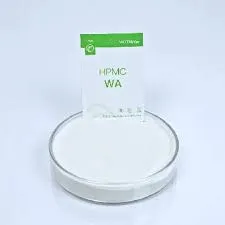
Lis . 14, 2024 14:09 Back to list
hpmc applications
The Applications of HPMC in Various Industries
Hydroxypropyl methylcellulose (HPMC) is a versatile polymer that has gained significant attention in various industries due to its unique properties and functionalities. A derivative of cellulose, HPMC is commonly utilized as a thickening agent, stabilizer, emulsifier, and film-forming agent. Its applications span across construction, pharmaceuticals, food, cosmetics, and personal care products, showcasing its adaptability and effectiveness.
Construction Industry
In the construction sector, HPMC is primarily used as an additive in cement and gypsum-based products. Its ability to enhance the workability, water retention, and adhesion of mortars makes it an essential component for tile adhesives, plasters, and wall putties. By improving the open time and reducing the risk of cracking, HPMC contributes to the durability and performance of construction materials. Additionally, the water-retention properties help maintain moisture levels during curing, which is critical for optimal setting and hardening in various environmental conditions.
Pharmaceuticals
In the pharmaceutical industry, HPMC is widely employed as an excipient in drug formulations. Its gel-forming ability allows it to be used in controlled-release formulations, where it helps to regulate the release rate of active pharmaceutical ingredients (APIs). HPMC is also used in the production of capsules, tablets, and topical formulations, providing stability and improving the bioavailability of medications. The compound is non-toxic and inert, ensuring its compatibility with a wide range of substances, which is vital for patient safety and effective treatment.
hpmc applications

Food Industry
The food industry benefits substantially from HPMC, primarily as a food additive that enhances texture and stability. As a thickener and emulsifier, HPMC helps improve the mouthfeel and consistency of products like sauces, dressings, and ice creams. Its ability to form gels and stabilize emulsions also aids in extending the shelf life of various food products. Moreover, HPMC is considered a suitable ingredient for gluten-free products, helping to mimic the texture and elasticity provided by gluten in traditional baked goods.
Cosmetics and Personal Care
In cosmetics and personal care products, HPMC is valued for its film-forming and thickening properties. It is commonly found in shampoos, conditioners, lotions, and creams, where it enhances the texture and stability of formulations. HPMC also provides a smooth application experience and improves the overall performance of cosmetic products. Furthermore, its non-irritating nature makes it suitable for sensitive skin formulations.
Conclusion
The versatility of HPMC is evident across multiple applications in various industries. Its unique properties as a thickening agent, emulsifier, and stabilizer make it an invaluable component in construction, pharmaceuticals, food, and personal care sectors. As demand for innovative and effective formulations continues to rise, HPMC's role is likely to expand further, promising even more applications and benefits in the future. Whether in building materials, medications, or everyday consumer products, HPMC demonstrates its importance as a functional ingredient that enhances quality and performance.
-
Versatile Hpmc Uses in Different Industries
NewsJun.19,2025
-
Redispersible Powder's Role in Enhancing Durability of Construction Products
NewsJun.19,2025
-
Hydroxyethyl Cellulose Applications Driving Green Industrial Processes
NewsJun.19,2025
-
Exploring Different Redispersible Polymer Powder
NewsJun.19,2025
-
Choosing the Right Mortar Bonding Agent
NewsJun.19,2025
-
Applications and Significance of China Hpmc in Modern Industries
NewsJun.19,2025







